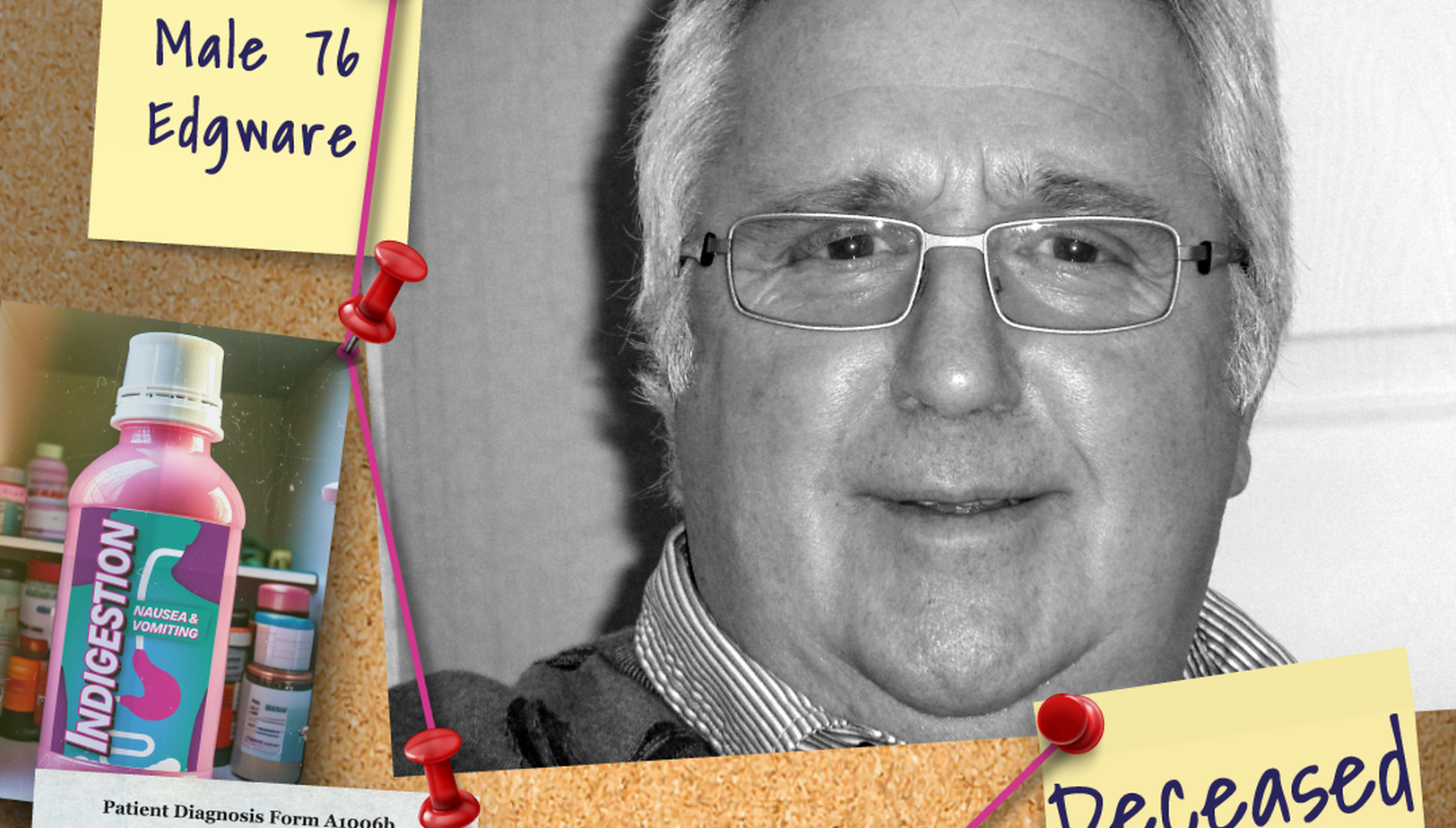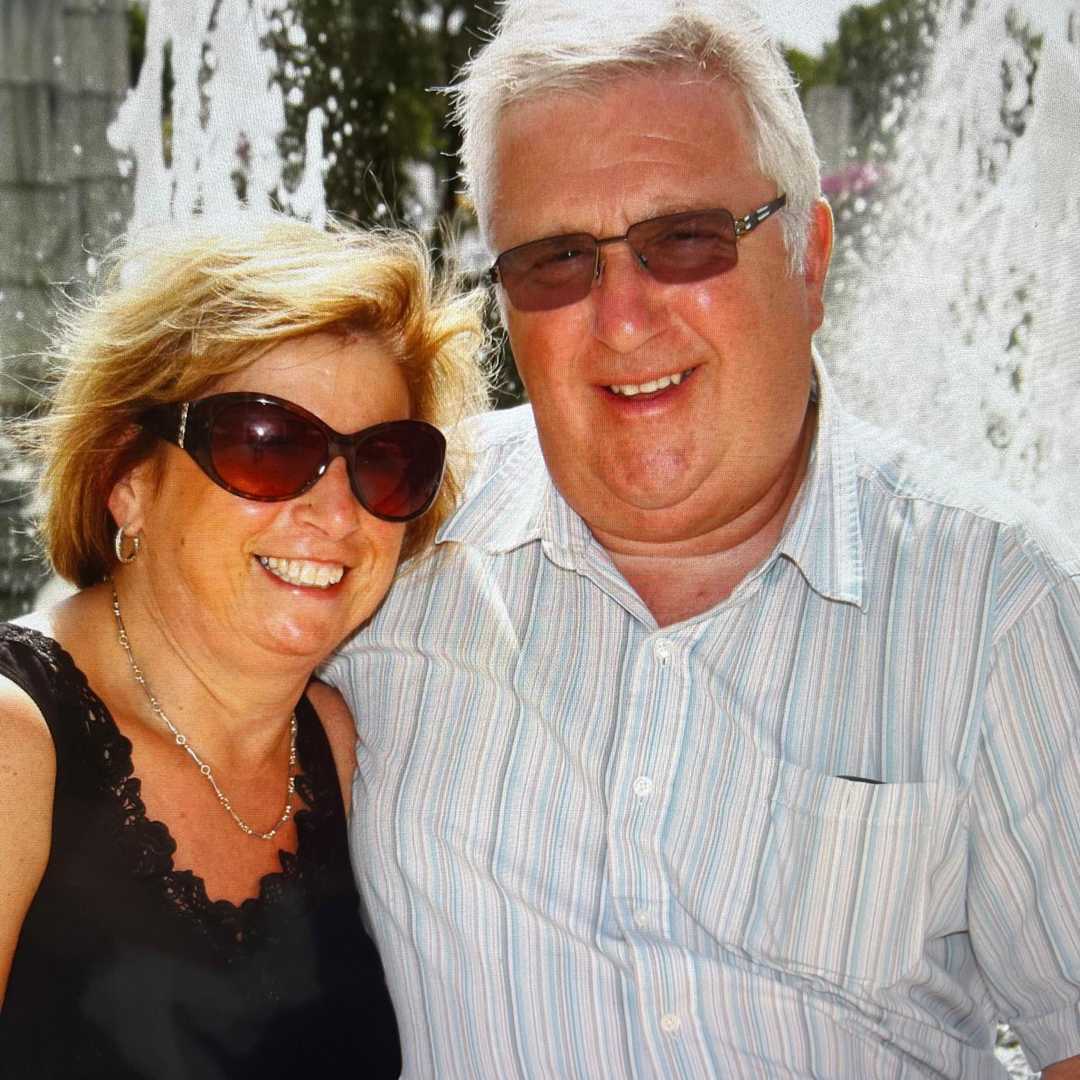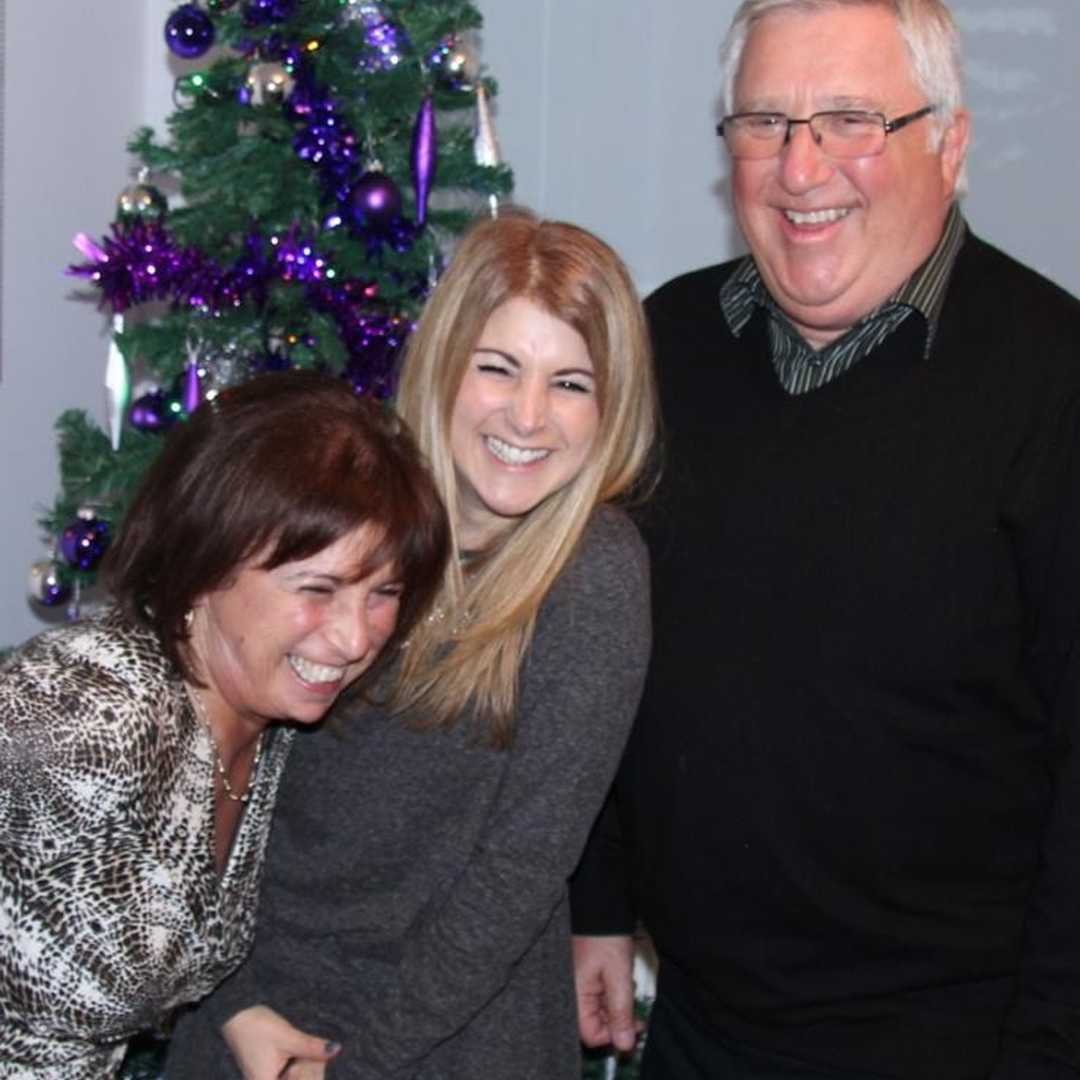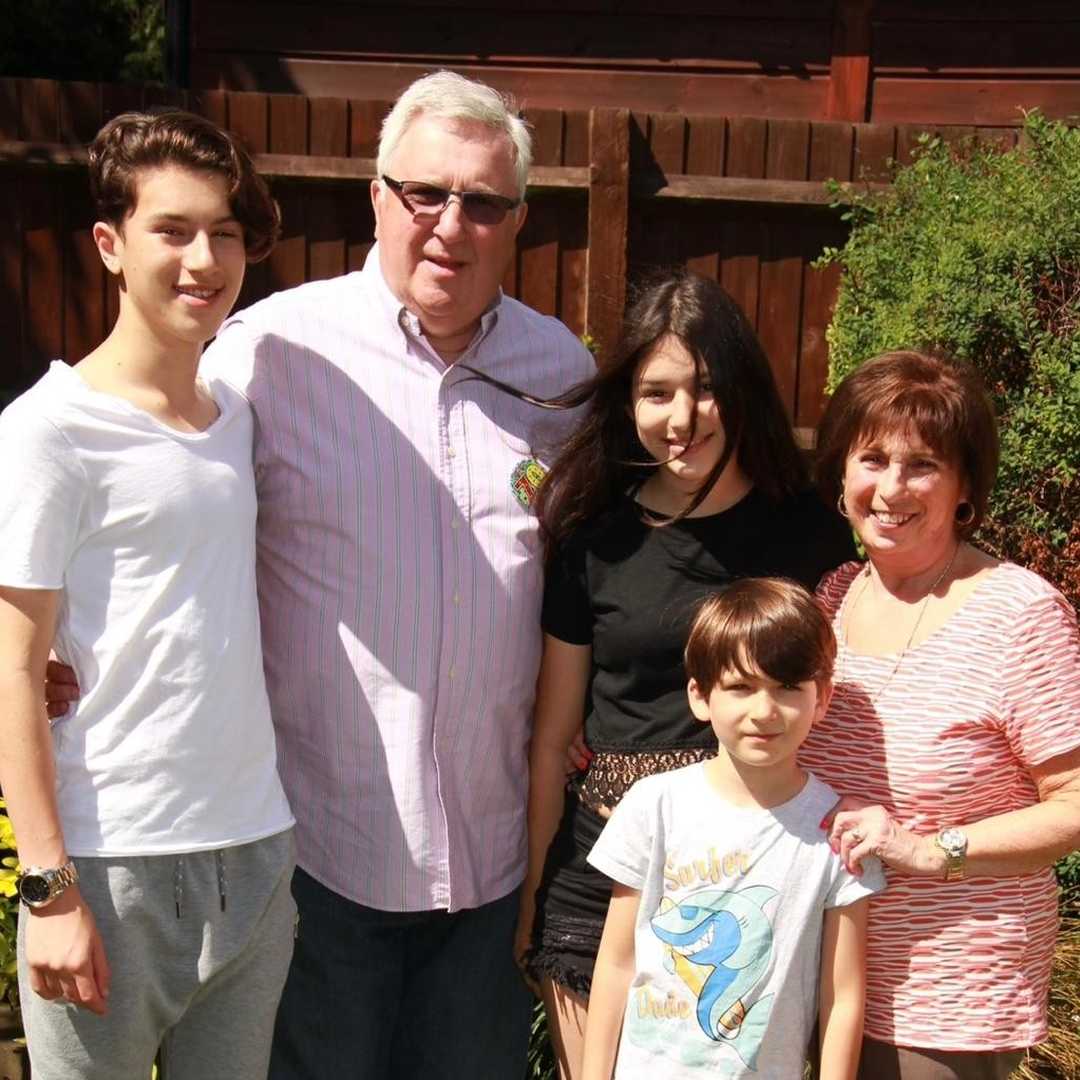Denise Gradus' Story
- Posted: 31 October 2025
- 5 min read
I wish Dad’s symptoms had been picked up earlier. Maybe things could have been different.
Denise Gradus
A loving husband, dad and grandfather taken too soon by pancreatic cancer.
When Denise Gradus talks about her father, Tony Fox, her eyes fill with warmth even as she fights back tears.
“He was kind, funny and dependable,” she says. “Dad was a proper family man, a loving husband, and he doted on me, my children and even our little dog. He was always there when we needed him.”
Tony’s story is one of deep love, resilience, and the devastating speed with which pancreatic cancer can change everything.
The first signs that something was wrong
In August 2021 Tony celebrated his seventy fifth birthday surrounded by family. He was still active and sociable, visiting Denise and her children almost every day and supporting his wife in every way he could.
The following month Tony and his wife went on holiday to Tenerife for a couple of weeks. Not long after they returned, Denise noticed something unusual. “I remember saying, ‘You’ve kept your suntan, Dad.’ But it wasn’t a suntan. It was jaundice, though I didn’t know that at the time.”
Around that same time, my dad, who had always suffered from indigestion and took lansoprazole daily, complained that it wasn’t working anymore. I remember he blamed it on a meal he’d had, a curry. He couldn’t stop belching. That was a symptom too, though we didn’t realise it then. The belching was caused by the blockage in his bile duct.
Soon after, Tony’s urine turned the colour of black coffee. Denise’s mum urged him to see the GP. Tests were arranged straight away, and the doctor noticed that Tony’s eyes were yellow.
Blood work, including a CA19-9 tumour marker, showed something serious was going on. Tony was referred to hospital, but the family’s first experience was upsetting. “We were sent to the wrong department, then made to wait in A and E for hours,” Denise recalls. “No one told us what was happening.”
On 31 October 2021, the day before Denise’s 49th birthday, they were given the news that changed everything. “A doctor came and said there is a tumour on your pancreas and we believe it to be pancreatic cancer. Dad just sat there in silence. I reached out to hold his hand. It was such a shock.”
Finding treatment and holding onto hope
Determined to give Tony the best chance, the family used private healthcare so he could see specialists quickly. A surgeon confirmed that the tumour was very close to important blood vessels, which made immediate surgery impossible.
The plan was to shrink the tumour with chemotherapy called FOLFIRINOX. “Dad asked if it would make the cancer go away,” Denise remembers. “They said they hoped it would make an operation possible but they couldn’t promise a cure.”
Because of Covid restrictions Denise often had to drop her dad at the hospital door. “Watching him walk in alone was heartbreaking,” she says.
Chemotherapy was tough. Tony lost four stone and all of his thick hair, which had been one of his favourite features. He suffered constant diarrhoea and needed a stent to relieve jaundice and later a port for the chemotherapy. “Even when he felt awful, he never complained,” Denise says. “He was so brave.”
After several months came a glimmer of good news. “They told us the tumour had shrunk by around twenty five percent. We were over the moon. It felt like a miracle.”
Next came targeted radiotherapy. For six weeks Denise drove her dad every day to the London Oncology Centre. “It only took five minutes but signing paperwork warning about burns or the risk of spread was frightening,” she says. “Still, we stayed hopeful.”
A cruel turn
By the summer of 2022 Tony and his wife managed a short cruise, but disaster struck when his wife fell and broke her pelvis. “Even though Dad was the one with cancer, he had to push Mum around in a wheelchair for the whole trip,” Denise explains. “He also caught Covid on the cruise, but for him it was just like a very bad cold. Mum was the one who ended up in hospital because of her asthma and the broken pelvis.”
That same summer Tony was determined to be there for an important family milestone. In August 2022, he and his wife travelled to the University of Nottingham to watch their eldest grandson graduate. “It was such a special day,” Denise says. “Dad looked so proud. I’m so glad he got to be there.”
Sadly, soon after came devastating news. Scans showed tiny spots on Tony’s liver. “Surgery was no longer an option,” Denise explains. “It was heartbreaking.”
Doctors tried a different chemotherapy, but Tony’s platelets fell and his health started to dip. In October he was admitted to hospital with internal bleeding from liver tumours. “He went in smiling and joking with the nurses. You wouldn’t have guessed how poorly he really was,” Denise says.
Fluid began collecting in his abdomen and a drain had to be inserted. A nurse quietly explained to Denise and her mum that the cancer had spread further, including to Tony’s adrenal glands. “I didn’t want Dad to know,” Denise says. “He was still asking when he could have more treatment. I wanted him to hold on to hope.”
Saying goodbye
On the morning of 10 November 2022 at around 8am, the phone call the family had been dreading, finally came. “We were told that Dad had taken a turn for the worse during the night and that we needed to come straight to the hospital to say our goodbyes,” Denise remembers. “I drove to pick Mum up in a haze and my husband brought my eldest two children so we could all be together.”
By the time they arrived Tony was very weak. He had stopped eating and was being given pain relief. “I took my two older children in,” Denise says. “We played his favourite Beatles songs while we sat with him. He was peaceful.”
At just after half past ten that morning Tony passed away with his family by his side. He was seventy-six years old, only a year after being diagnosed. Tony died nine days after Denise’s 50th birthday and the day before his granddaughter’s 19th birthday.
Why sharing Tony’s story matters
Pancreatic cancer is the deadliest of the common cancers, yet awareness of its symptoms remains far too low.
Typical signs can include:
- Jaundice or yellowing of the skin and eyes
- Dark urine and pale stools
- Unexplained weight loss or lack of appetite
- Pain in the stomach or back, especially after eating
- New onset diabetes, particularly in people over fifty
“If GPs recognised these signs sooner, and if blood tests were done routinely for people at higher risk, more families might be spared,” Denise says. “I wish Dad’s symptoms had been picked up earlier. Maybe things could have been different.”
Honouring Tony’s legacy
Tony Fox was more than a patient. He was a husband, dad, grandad and friend. He was a man who made people laugh and always kept his promises.
“Dad deserved so much more time,” Denise says. “If telling his story helps even one person get an earlier diagnosis, that is exactly what he would want.”
Pancreatic Cancer Action is dedicated to improving early diagnosis, raising awareness and supporting patients and families. By learning the symptoms, sharing them and supporting our work, you can help change the outcome for people like Tony.
Deadly killer
Pancreatic cancer is the deadliest common cancer. Spotting the signs could save your life. Do you know the symptoms?
Take a look at our campaign that exposes the truth: pancreatic cancer is a silent killer that doesn’t wait or discriminate. Recognising the symptoms early and acting fast could save your life, or someone else’s. When you know the signs, you have a chance to fight back against this deadly killer.
Learn more



